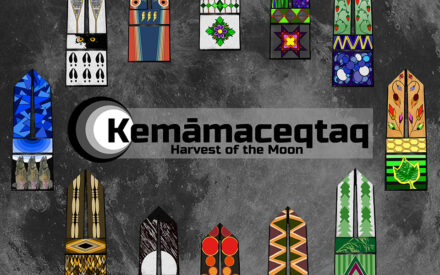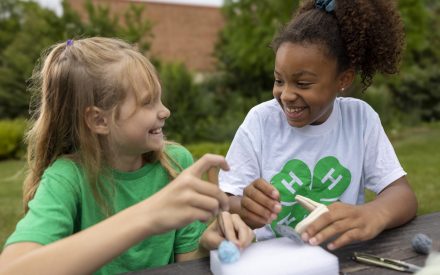Addressing adolescent well-being is an identified priority across the state of Wisconsin. Following the COVID-19 pandemic, data from the 2021 Wisconsin Youth Risk Behavior Survey indicated that 55% of high school youth reported they have had problems with anxiety, 33% reported they have been so sad or hopeless they have stopped regular activities, and 18% had seriously considered suicide. In addition, 61% of high school youth affirmed a mental health concern in at least one of six related questions on the survey. Furthermore, subgroups of youth have even higher rates, notably 80% of high school youth who identify as lesbian, gay, or bisexual report having problems with anxiety, and 66% report problems with depression.
Extension along with state and local departments of public health work with partners to improve youth mental health and prevent suicide and risky behaviors to promote adolescent well-being. Extension educators are uniquely positioned to provide systems-level support to local and tribal health departments (LTHD) across the state in their efforts to improve adolescent well-being through integrating youth engagement in their efforts. In 2023 the Health & Well-Being Behavioral Health Program was selected by the Wisconsin Department of Health Services to provide technical assistance for the Maternal Child Health (MCH) Title V program with a focus on adolescent well-being for a three-year cycle. Thirty-eight local and tribal health departments across the state selected this priority area in 2023, concentrating their efforts within the following objectives:
Objective 1: Develop resource networks between local/Tribal public health departments and Extension to support adolescent well-being efforts.
Objective 2: Build local/Tribal public health department capacity to engage youth for equitable approaches to advancing adolescent well-being
This technical assistance grant opportunity served as the primary platform for systems-level efforts to incorporate youth engagement and youth voice in improving adolescent well-being across Wisconsin.
Engaging Youth and Organizations across Wisconsin
Extension’s Behavioral Health Program was selected as a technical assistance (TA) provider to the Maternal and Child Health (MCH) Program’s Title V Block Grant Adolescent Well-Being Objective between 2023-2026. In 2023, Extension provided TA to increase the capacity of 38 local and Tribal health departments to incorporate youth engagement and youth voice and support systems-level change around improving adolescent well-being across Wisconsin. TA and other statewide activities ranged from one-on-one consultations to quarterly learning community calls in addition to direct education and office hours. Highlights of these activities include:
- 19 Youth Mental Health First Aid courses reaching 590 individuals to support adults who live and interact with adolescents. Participants learned skills and strategies to identify and respond to signs of a mental health or substance use challenge to connect individuals to appropriate professional help, provide support, reduce stigma, improve mental wellness, and reduce the risk of suicide.
- Over 380 adolescents trained in the Teen Mental Health First Aid course in which participants learn to identify, understand, and respond to signs of mental health and substance use challenges in their friends and peers.
- Extension established a new partnership with PATCH (Providers and Teens Communicating for Health) to increase the capacity of health departments to incorporate youth voice in program planning and implementation efforts. Through this partnership, a Youth Advisory Council (YAC) was developed that includes seven PATCH youth who are engaging in the Youth Advocates for Community Health framework as a model for the LTHDs. The YAC also provides valuable insight and education around addressing the needs of underserved youth to the local and tribal health departments and Extension educators.
- Two trainings were conducted for adults to support development of the youth engagement/youth voice program, Raise Your Voice, in conjunction with the National Alliance on Mental Illness-Wisconsin. These sessions had 55 total participants including representation from six local and tribal health departments. This program is grounded in creating environments where adolescents address mental health needs with education, leadership development, advocacy, and action.
- Four learning community calls and eight office hours were conducted focusing on topics like youth engagement, incorporating adolescent well-being in community health improvement plan efforts, and compassion resilience.
A Model for Youth Engagement
Extension’s technical assistance and other statewide activities resulted in an increase in local and Tribal health department and educator capacity to identify and respond to adolescent well-being needs.
Mental Health First Aid was selected as a key component of the TA efforts based on previous and current evaluation results, including data from MHFA programming from 2020-2023, which found that 84% of participants found the course helpful and informative. In addition, our 2022 evaluation of MHFA demonstrated that participants felt significantly more confident helping a young person experiencing a mental health challenge after completing the course. They also were significantly more likely to speak with a young person about their mental health challenge, to take action to support a young person directly, and to discuss a young person’s mental health challenges with other appropriate helping adults.
To scaffold efforts and increase the opportunity for impact on adolescent well-being, the Behavioral Health Program also sought to build capacity within local & tribal health departments (LTHDs) and enhance relationships and collaboration between LTHDs and Extension educators and programming. This outcome was accomplished through TA learning community calls and office hour sessions. Overall, 91% of learning community call participants and 86% of the office hour call participants said that these calls were a good use of their time in relation to meeting their MCH objectives. The learning community call participants were also asked to rate on a scale of 1-10 the extent to which they learned something new that will help them address adolescent well-being, with the average rating being 7.8. Approximately a quarter of respondents specifically noted that they appreciated hearing what other health departments are doing and learning from one another; one commented: “Listening to what other agencies are creating/having success with is very helpful and empowering.” In addition to the connection opportunities noted, the PATCH partnership and Youth Advisory Council provided a model for youth engagement and incorporation of youth voice for LTHDs to build upon. This team embarked on the Extension Youth Advocates for Community Health (YACH) framework in 2023 and will conclude the process and share their outcomes during the second year of the grant cycle. Finally, the Raise Your Voice (RYV) program trainings offered increased awareness of this youth engagement/youth voice opportunity and NAMI resources to LTHDs and educators. In 2023, two new RYV programs were started by LTHDs.
As previously noted scaffolding was intentionally built across the three-year cycle. Moving forward all LTHDs will benefit from ongoing direct education and capacity-building efforts. New in 2024, based on the 2023 outcomes and needs identified, the Extension team will be developing toolkits to address adolescent substance use and prevention and youth engagement. In addition, the 2023 efforts revealed high rates of turnover and understaffing within health departments. In order to effectively address adolescent well-being, Extension recognizes the need to leverage our capacity to support LTHD staff. In response, 2024 TA efforts will also include training opportunities around well-being and compassion resilience.
Download Article

 Strengthening and Engaging Local Health Coalitions
Strengthening and Engaging Local Health Coalitions Supporting Youth Mental Health and Well-Being
Supporting Youth Mental Health and Well-Being Depth-to-Bedrock: Updated Mapping & Decision-Making
Depth-to-Bedrock: Updated Mapping & Decision-Making Building High-Quality Programs to Help Youth Thrive
Building High-Quality Programs to Help Youth Thrive


